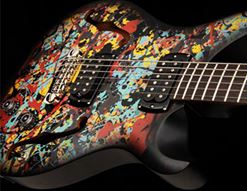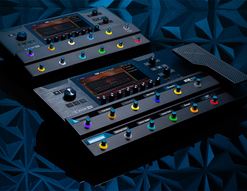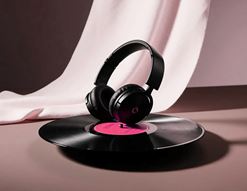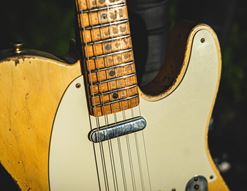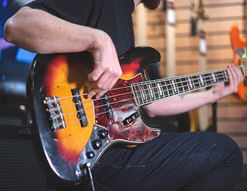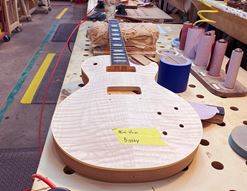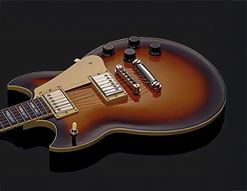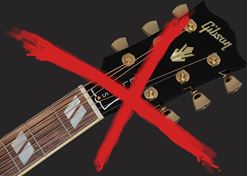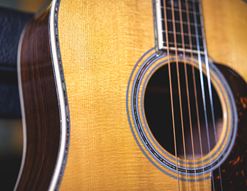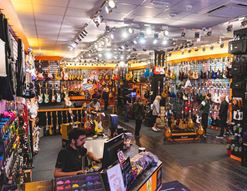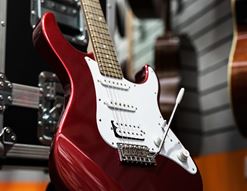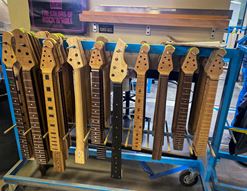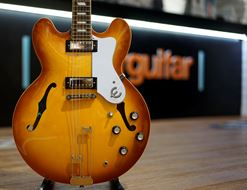What are your thoughts on Epiphone guitars?
In fact, have you tried one out recently? All guitar brands carry with them preconceptions and expectations, and Epiphone is a particularly interesting one in those regards.
I want to delve into this a little bit today. I want to see where the brand sits within the larger world of guitars, their backstory and their perception. I want to question that persistent notion that they are ‘bargain Gibsons’ and see if this is even a relevant opinion these days.
Why don’t you whack on the kettle and join me?
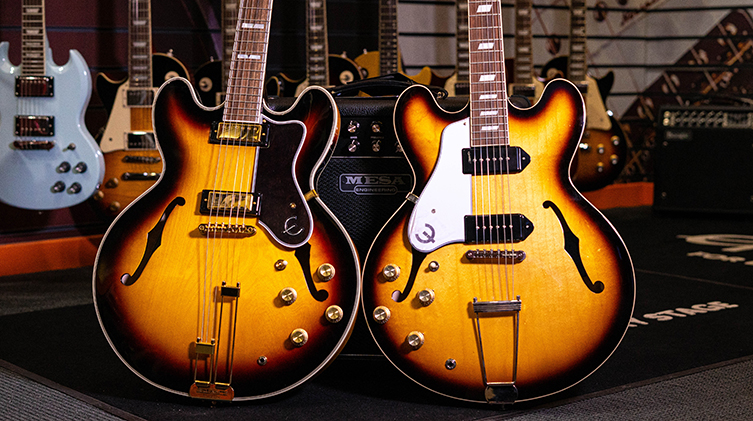
Contents
Epiphone - A Historical Titan
Epiphone are a brand with a pretty dazzling history, but I’m not sure that point gets successfully put across all that often.
There’s a bunch of history on Epiphone to dive into if you’re interested, but here are the main points that I feel are worth having in your head…
- The company started out over 150 years ago in Greece, before moving to NYC.
- They rose up during the Jazz age, making ornate hollowbodies and other stringed instruments.
- The brand name comes from a translation of ‘Epi’s Sound’. Epi Stathopoulos was the company owner and mastermind during this time.
- Epiphone was a family business, and they worked out of a New York factory where jazz musicians would hang with Epi.
- Epi got ill and died at a young age. His brothers lacked his charisma and vision. The company suffered as a result.
- Epiphone were not only Gibson’s biggest rival in the 30s and 40s, they were actually outselling them.
- Gibson bought Epiphone in 1957 at Les Paul’s recommendation because they were a big threat to their business. Ownership meant control and lack of competition.
So, the notion of Epiphone being a brand of official Gibson replicas is actually only a recent thing. It’s also somewhat erroneous, given how many original model Epiphones remain in production. In fact, let’s look at those now…
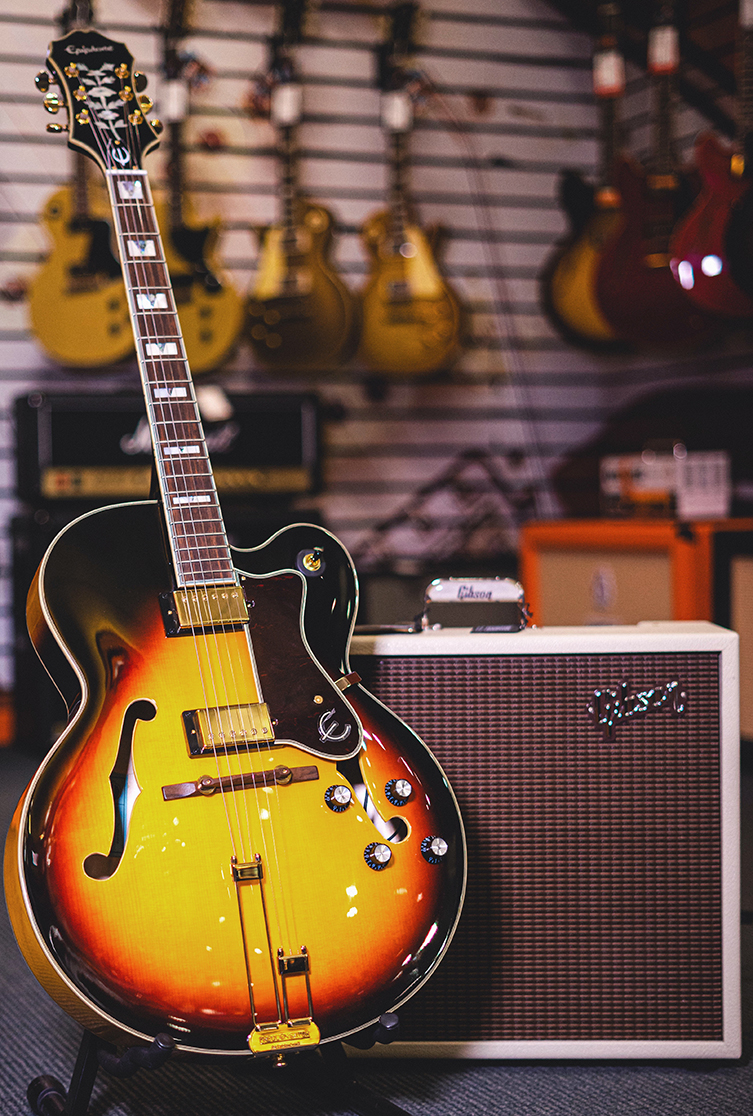
Epiphone Original Models
Whilst it’s a fact that Epiphone produce a high number of affordable Gibson replica guitars, there has always been a selection of their original designs on offer, too. Here are a few notables…
Epiphone Casino: John Lennon put the Casino on the map forever, and today’s version doesn’t stray far from that one at all. It’s a fully hollow guitar (unlike an ES-335) with a set of single coil P90s and a neck that sits further into the body than other semi-acoustics. Interestingly, it’s similar to the Gibson ES-330, but the Casino came first!
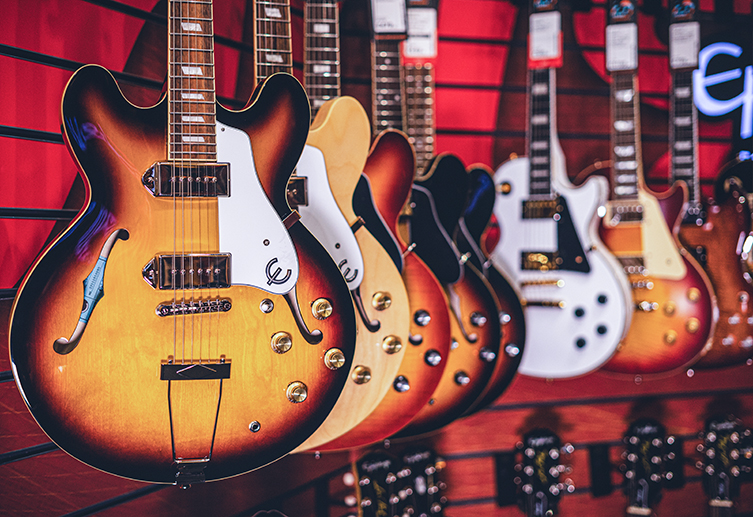
Epiphone Wilshire: This idiosyncratic solidbody guitar has appeared in a large number of variations and guises since the 60s. It is a popular model for iconoclastic players who want something a bit more ‘off the beaten track’.
Epiphone Riviera: A favourite of a certain Gallagher brother, this Epiphone original has changed somewhat over the years, but often includes mini humbuckers and a ‘Frequensator’ tailpiece. As legend has it, the Riviera was one of the initial ‘post buyout’ Epiphones, and was made in Gibson’s Kalamazoo premises. It retained the Epiphone name due to existing dealer concerns, and allowed Gibson to build more guitars without competition. A Gibson by any other name? Seems like it.
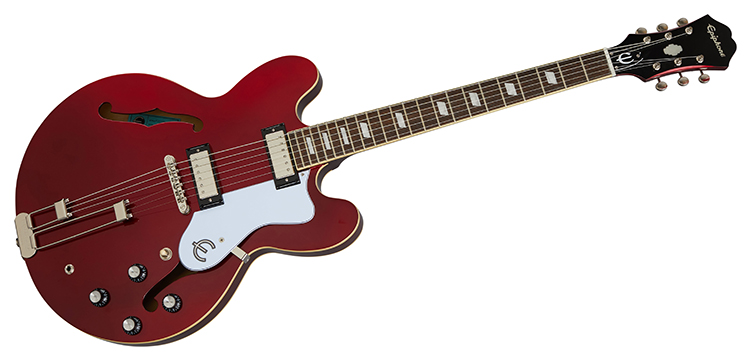
Epiphone Texan: The Texan was another Kalamazoo model, but that’s not where its story began. No, the Epiphone Texan is actually an original Epiphone acoustic guitar design from way back in 1942! Production changed over to Kalamazoo in 1957/8 when Gibson bought Epiphone. It was built there until 1970, and has been released sporadically since.
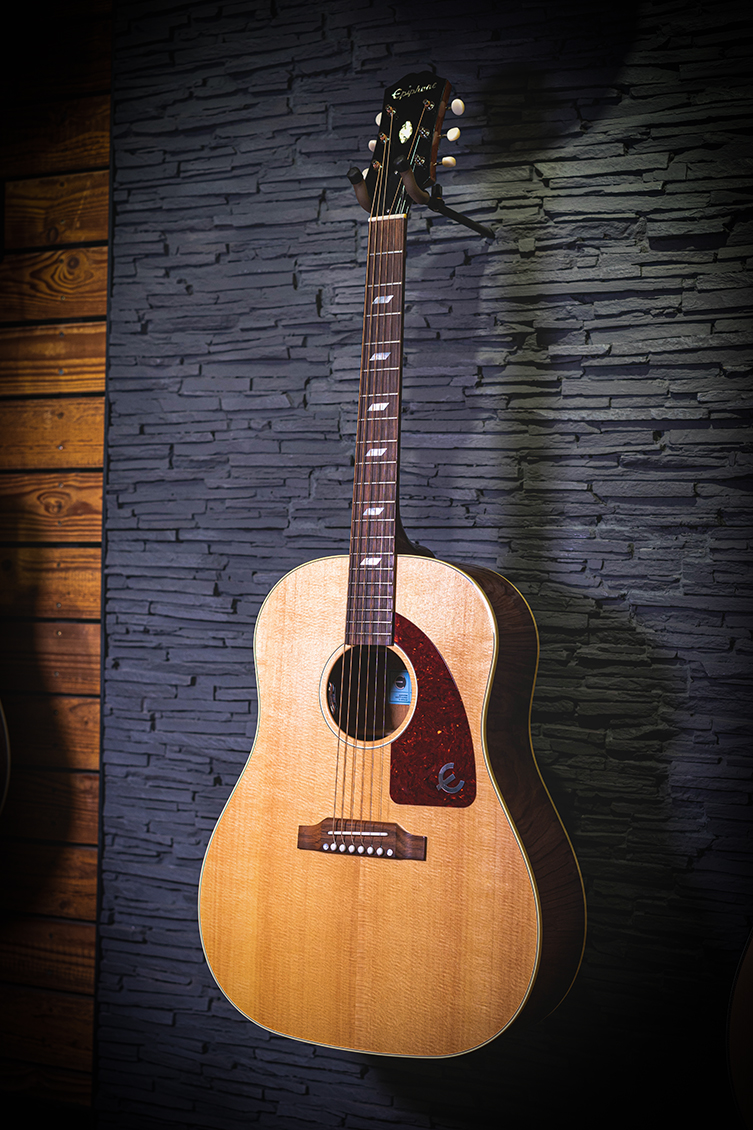
Epiphone Sheraton: The Sheraton is obviously heavily based on the Gibson ES-335. However, it has a decorative look all of its own that is taken from the gorgeous Epiphone hollowbodies of the Jazz Age. Also, blues legend John Looker preferred his Sheratons over any 335 models, calling them ‘an outdid 335’.
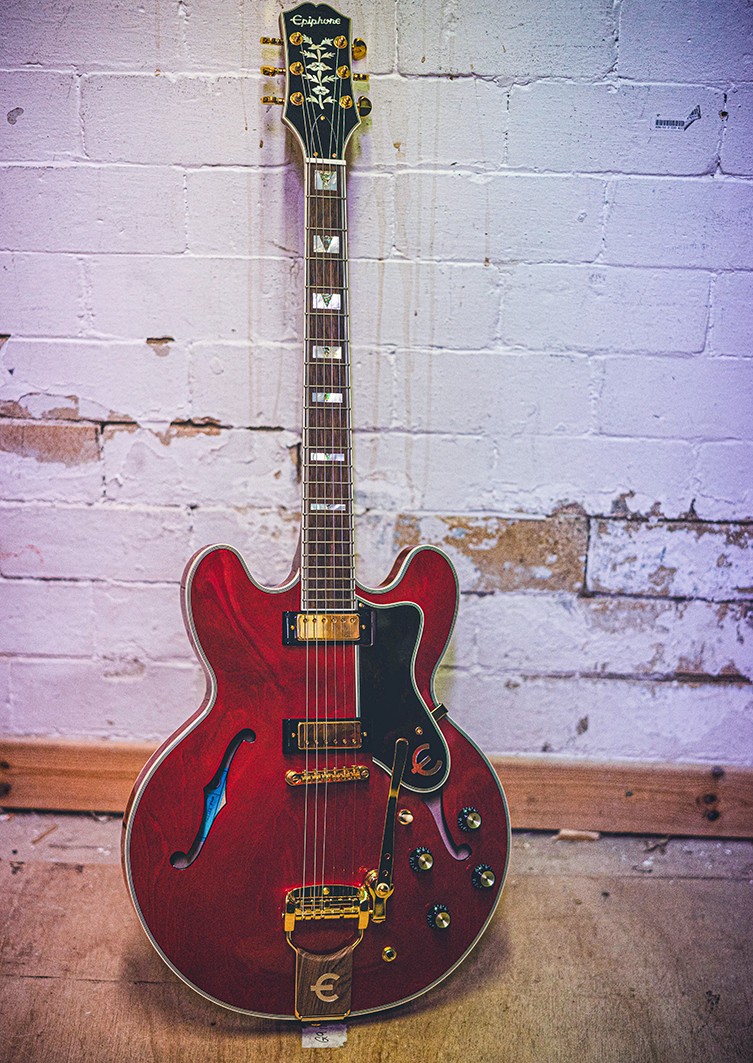
As you can see, original Epiphone guitar designs have not only survived but thrived. I haven’t dipped my toe into the world of their large hollow body jazz guitars here, only because Epiphone don’t currently produce any. I hope they do in the future, because it’s a massively important part of the brand’s heritage. Plus, they were super-duper cool.
Epiphone Artists (and a Word About ‘Made in USA’)
There has been a perception in the past about Epiphone being a brand for wannabes, or those who can’t afford a Gibson. It’s something that’s pretty out of date now, and maybe informed by those who love the status of expensive guitars more than the actual act of playing them.
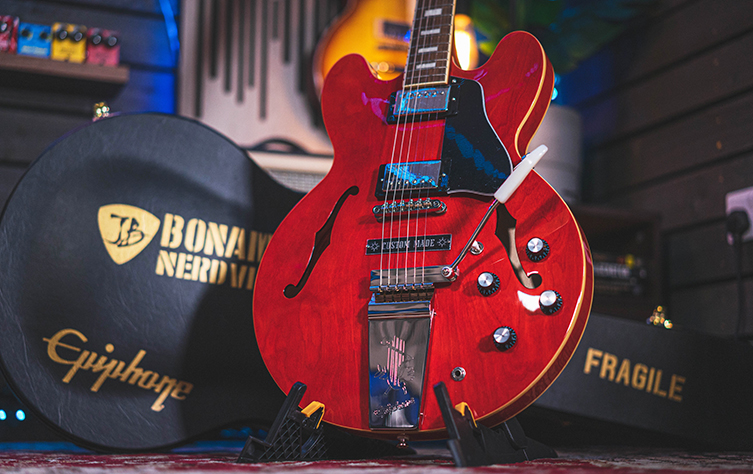
I get it, to an extent, but it’s not very warranted these days, given the quality level of Epiphone guitars today. Not only that, but the sheer numbers of top names who routinely play Epiphones is evidence enough to take the brand as seriously as they deserve. This has actually always been the case, right from the days of The Fab Four.
Now, before I go ahead and list a bunch of amazing Epiphone artists, I know there will be comments like ‘yes but the Beatles played USA made Epiphones!’ and so on. True! But let me be honest with you on this: as somebody who has been lucky enough to play literally dozens of vintage Fenders and Gibsons, I have to tell you that vintage provenance and big label status have absolutely ZERO to do with an instrument being good or bad. Bragging rights? Sure! But inherently good? Not automatically, no. I’ve played far too many 1970s clunkers from both of those top brands to be swayed by the mere notion that ‘vintage USA made’ is inherently better.
Okay? Now, here is a list of just some of the successful artists who choose to play Epiphone. Some of these will be vintage American Epiphones, but the majority will not…
- John Lennon
- Paul McCartney
- John Lee Hooker
- Thom Yorke
- Noel Gallagher
- Matt Heafy (Trivium)
- Frank Iero (My Chemical Romance)
- Gary Clark Jr
- Joe Bonamassa
- Zakk Wylde
- Paul Weller
- Nick Valensi (The Strokes)
- Daniel Kessler (Interpol)
- Alex Turner (Arctic Monkeys)
- Jeff Waters (Annihilator)
How many brands can top that for a list of artists? I could’ve stopped at the first one really, couldn’t I? But there you go, proof if it ever were needed that Epiphone are a professional choice.
Recent Epiphones
I asked at the beginning of this blog whether you’d tried an Epiphone recently. I wasn’t being glib: they’ve had a recent product line shake-up and, as a player familiar to the brand since the mid 90s, I can tell you that the current Epiphone stuff is the best it has ever been.
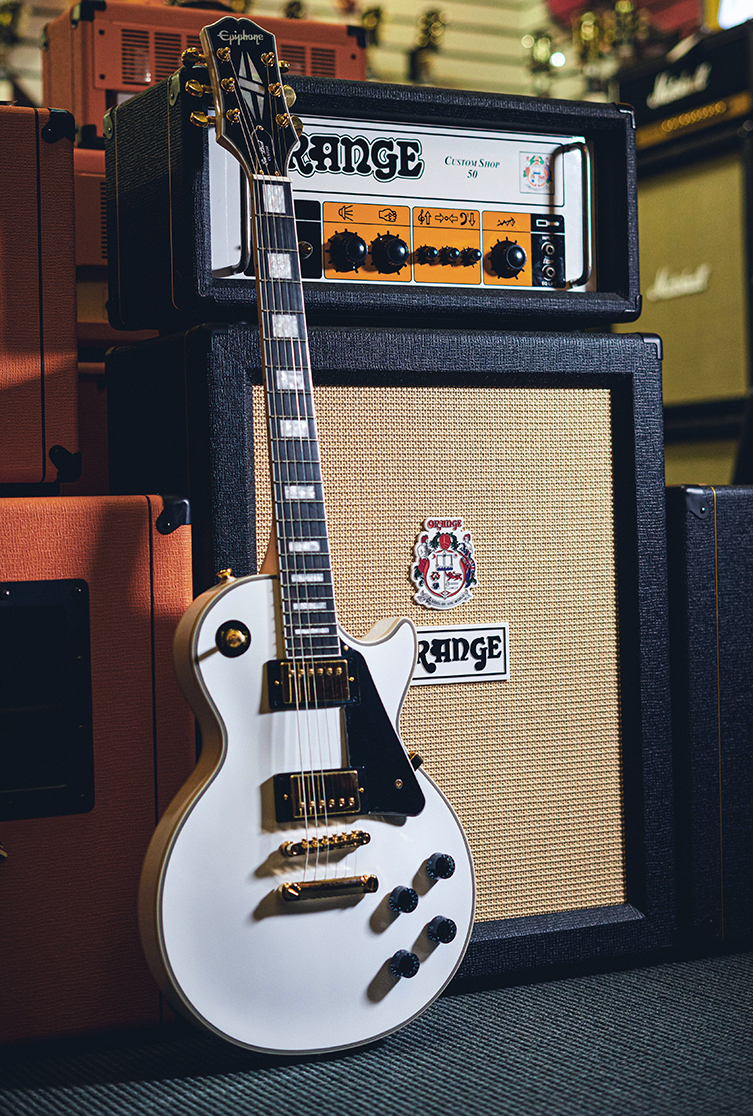
Does that sound like sales talk? Maybe so, but we both know that the proof in this sort of pudding is in the tasting. Walk into any guitarguitar store and try out some guitars straight off the wall. I’m pretty confident that any player who is already a fan of, say, the Gibson ES-335, is going to be very impressed with the Epiphone Inspired By Gibson 1962 ES-335.
There are now two tiers of Epiphone, really. Standard stuff, which retails around the £500 mark (often a good bit less), and the Inspired By Gibson guitars which go past a grand. Does that seem expensive? Compared to the prices for higher spec Schecters and LTD guitars, it doesn’t really seem all that outrageous, particularly when you realise how good they actually are. A guitar like a 335 will never be cheap or simple to make, and these current ones are light years nicer than the ‘Dot’ models from ten years ago. Again, try one and see for yourself!
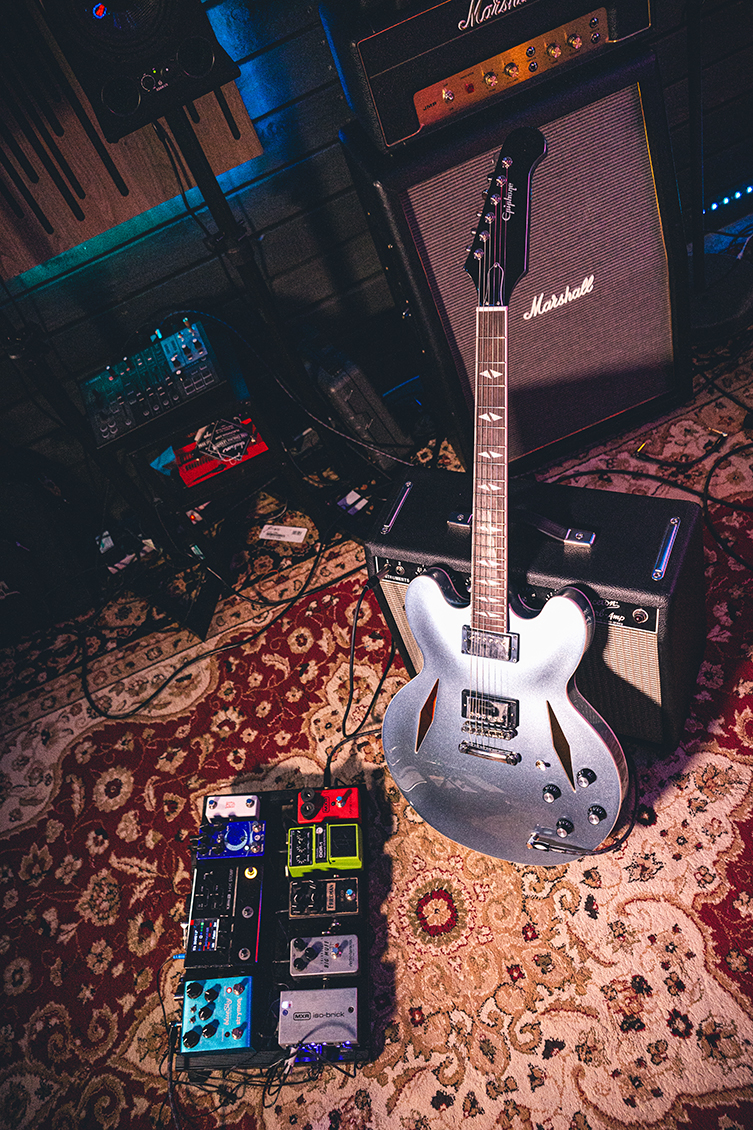
Chinese-made guitars are frequently £1000+ these days, and the blunt truth of the matter is that it no longer matters where a guitar gets built in terms of build quality and finishing. The price is impacted due to economic factors, yes, but not due to a perception of ‘good’ or ‘bad’. It’s a fact that any Epiphone - standard or pricier - can absolutely go on tour with you, and then head into the studio and record beautifully.
When it comes down to it, what more can you really expect from a guitar?
Is Epiphone Good Enough?
So, there’s my argument in favour of Epiphone. I feel like they are a classic guitar brand whose name deserves to shine with an equal light to any of their competitors. Yes, they are a partly a subbrand of Gibson, who make affordable replicas of Gibson classics. But they are so much more than that. Think back to Epi Stathopoulos and remember how innovative and cool that guy was. His spirit lives on in every guitar that bears his name. Be proud to play Epiphone guitars.
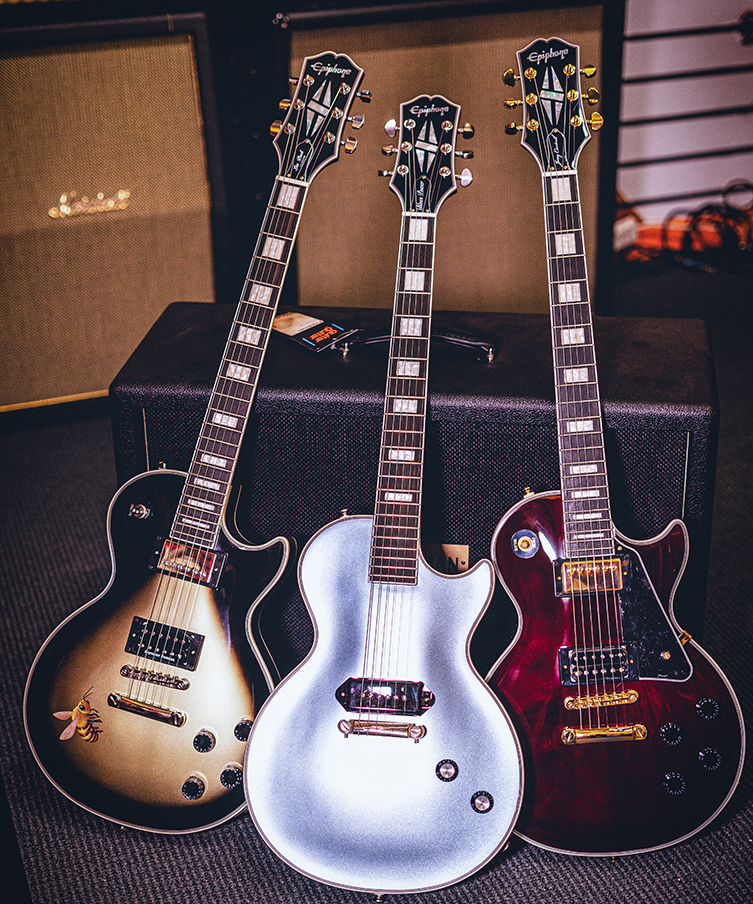
Click to View our Epiphone Guitars


